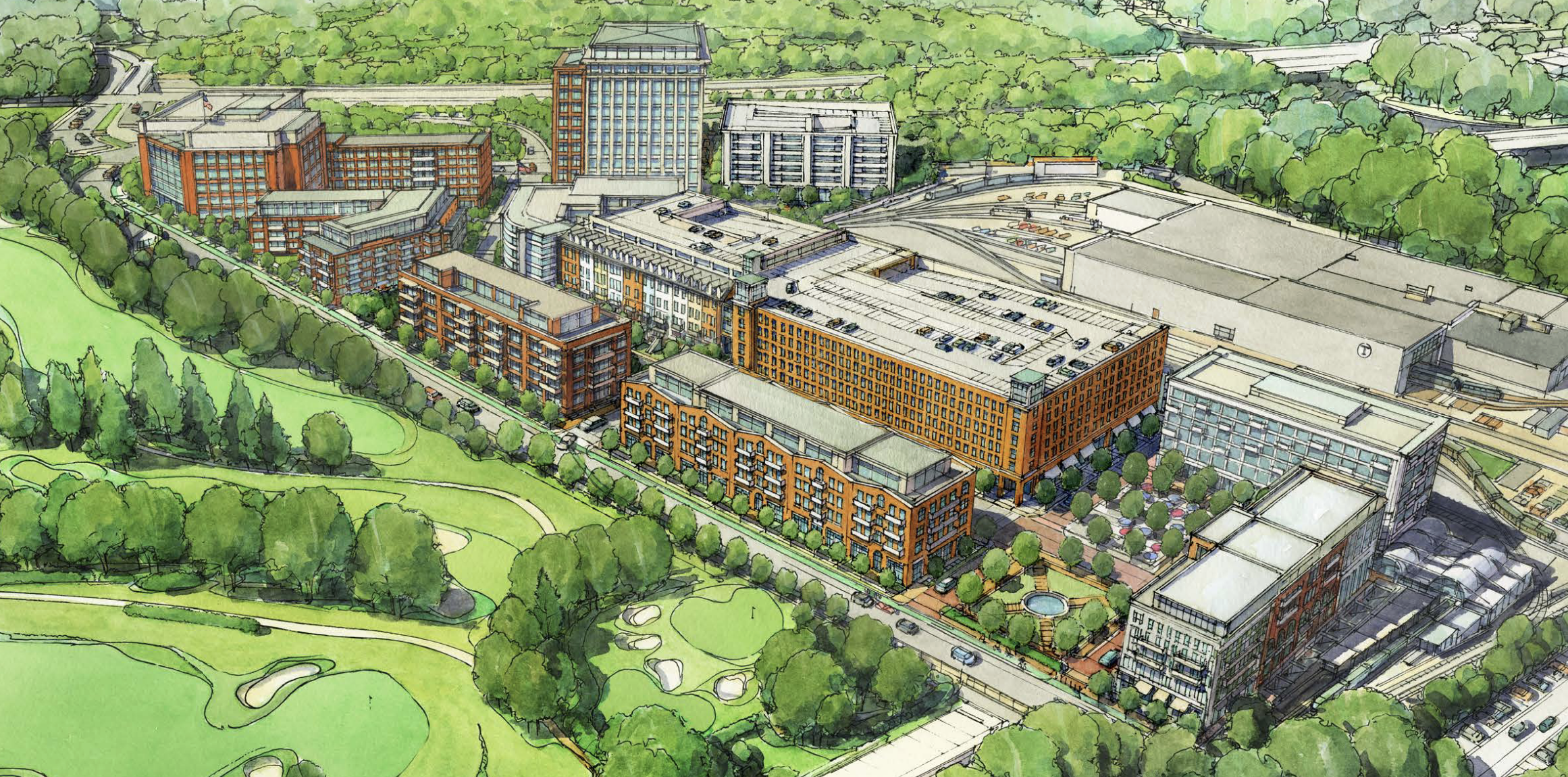Long-delayed plans to redesign the MBTA-owned parking lots at the end of the D section of the Green Line in Newton are currently being revised again as developers seek to create more housing and fewer parking spaces for MBTA commuters on the site.
The current Riverside station – located at the end of the green D Line on the western edge of the city of Newton – borders a massive 28,000-square-foot asphalt field with about 950 MBTA-owned parking spaces.
Plans to replace this pavement with something more useful have been floating around for decades, but so far none of these plans have been able to strike a balance between financial viability and Newton’s complex process of applying for special permits for major construction projects.
An early plan for the site, approved by Newton’s Planning Board and City Council in 2013, called for 290 apartments, a quarter-million square feet of office space and new garages with over 2,000 parking spaces, including 1,000 spaces for MBTA commuters.
After that project failed to get off the ground, a new development team, Mark Development, returned to the MBTA and the City of Newton in 2019 with a revised proposal.
The current building permit, granted by the Newton City Council in 2021, allows Mark Development to build a massive 2,171-space parking garage, in which 1,000 spaces would be reserved for commuters on the MBTA park-and-ride system, as well as two large laboratory buildings and 550 apartments in six other buildings surrounding the new parking garage.
New proposal prioritizes housing
Almost three years have passed since then without anything happening on the site. The market for new laboratory buildings has now collapsed.
Now Mark Development is back with another proposal that aims to replace the laboratory space with more living space.
“We reviewed the project with the developer with a number of goals in mind,” Richard Henderson, T’s chief real estate officer, told MBTA board members in a briefing on the changes last week.
Under the new proposal, Mark Development would build a Phase One residential project on the southwest edge of the site, adjacent to the Grove Street interchange with Route 128.
According to Henderson, about 545 apartments and a new parking garage would be built in this first phase.

In a future second phase, developers would replace more of the existing parking spaces with additional buildings in the center of the site, potentially adding 100 to 200 more apartments and another garage.
In both phases, commuters on the MBTA’s park-and-ride system would continue to have access to 650 parking spaces—about 33 percent fewer than today—with parking spaces in the new parking garages gradually replacing surface parking spaces in each phase.

New plans could also rethink the Grove Street hub
Another notable feature of the updated development plans is a new roundabout for the Grove Street on-ramps to Route 128 (visible in the lower left corner of the proposed site plan pictured above).
The 2021 development proposal would have required Mark Development to give up a significant portion of its land on the western edge of the site to make way for a new interchange for northbound traffic on Route 128.
The new site plan (pictured above) appears to leave the northbound Route 128 on-ramps in their current location, with a new roundabout at Grove Street where the existing northbound on-ramps and off-ramps meet.
Plans likely require new special permit from Newton
At its August meeting, the MBTA Board of Directors authorized MBTA staff to negotiate an amended lease for the site consistent with the updated development proposal.
However, many details of the proposal – including how many parking spaces outside the MBTA the developers plan to build – remain uncertain.
StreetsblogMASS reached out to Mark Development on Monday to request more information but did not receive a response by the end of the day.
Ellen Ishkanian, a spokeswoman for the city of Newton, told StreetsblogMASS on Monday that the city has not yet received a formal request for the updated plans.
In late 2023, the Newton City Council approved a higher-density zoning district, the Village Center Overlay, to comply with new state requirements for more housing-friendly zoning rules near MBTA stations. Ironically, however, the changes do not apply to the Riverside site.
Ishkanian told StreetsblogMASS that the new proposal for Riverside will likely require another special permit from the Newton City Council.

